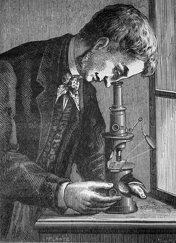It’s good news for Medicaid advocates that the program will be spared from cuts if the deficit reduction “super committee” is unsuccessful in its effort to squeeze about $1.5 trillion in savings from the federal budget. But failure to reach consensus on cuts is hardly an ideal scenario, according to an advocate for cancer patients.

Illustration by Biblioteca de la Facultad de Derecho y Ciencias del Trabajo Universidad de Sevilla via Flickr
The reason: Patient advocates have a variety of interests to protect when it comes to the deficit reduction committee, ranging from funding for medical research to Medicare, so it’s difficult to know just who would come out ahead if across-the-board cuts are triggered in the absence of a deal. For instance, even if Medicaid escaped the process unscathed, funding for the National Institutes of Health and the Centers for Disease Control and Prevention would likely take a hit — as could all the various prevention benefits now provided as a result of the health law.
Christopher Hansen, president of the American Cancer Society Cancer Action Network, said the bottom line is that the panel has to make clear the value of the health care safety net. “This is a point in our history, I think, where we have to decide what the priorities of this nation are. And I find it hard to believe that one of those priorities is not providing health care for people who have no other options.”
However, with Medicaid costs growing at an unsustainable rate, the super committee is expected to look at the program closely, so health care groups, including the cancer network, Families USA, the American Diabetes Association and the American Lung Association, want lawmakers to know just how devastating cuts would be for Medicaid patients with diseases like cancer, diabetes and other chronic conditions.
The groups released four state-specific reports Wednesday about how many people with certain diseases depend on Medicaid for access to treatment. In California, for example, Medicaid provides benefits to 140,340 cancer patients, 562,720 diabetes patients, 850,510 chronic lung disease patients and 1.2 million heart disease or stroke patients. The groups also released reports on Texas, Illinois, and New York and will roll out an additional 18 reports in the coming weeks.
But Ron Pollack, executive director of Families USA, also stressed that the sequestration carve-out for Medicaid, which is what spares the program for the poor and disabled from automatic cuts, is critical — and could be preferable to the outcomes that could result if the super committee reaches an agreement.
“I don’t think you’re going to see pom-poms about sequestration, but if the sequestration process is triggered, people who are on Medicaid will be protected,” he said. “And I must say that I fear that if the super committee does come up with a proposal it is very possible that that proposal might include some cost shifts in Medicaid.”
Meanwhile, also this week, these groups also joined about 150 other consumer and patient advocates, plus a few physician organizations, in warning super committee leaders against cutting Medicaid.
Specifically, they signed a letter urging the committee co-chairs, Sen. Patty Murray, D-Wash., and Rep. Jeb Hensarling, R-Texas, to reject arbitrary cuts to Medicaid and to allow the health law’s eligibility expansions to go forward. Signers of the letter include the seniors group AARP, the AFL-CIO, the American Academy of Pediatrics, and the American Congress of Obstetricians and Gynecologists.
Marilyn Werber Serafini contributed to this report.






